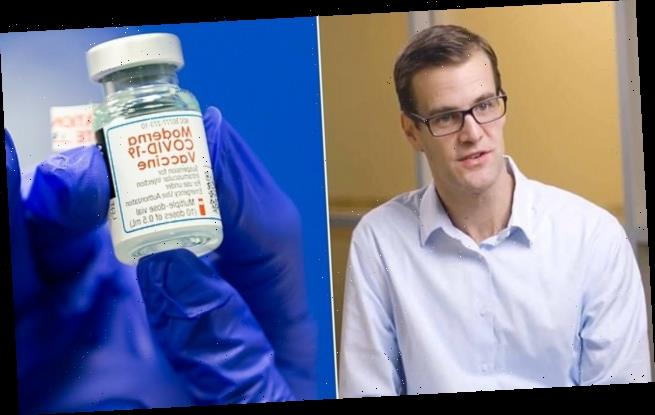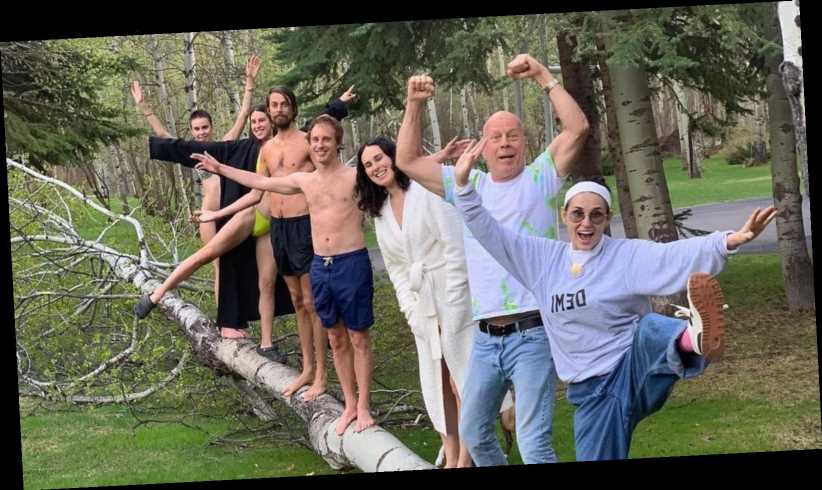For four years I followed Larry on the air. He was in L.A. and I was in New York, so we met on television — and we developed a relationship on television. When I was in L.A., or he was in New York, we always got together, and it was actually quite warm. He was an odd character in my life. He was generous, and he was funny, and I liked him a lot.
Our exchanges on air were like walking through an Iraqi village and not knowing where the IEDs were. I was doing a news show, and on any night we could have led with something awful that happened that day — somebody died, a village was blown up. News. Bad stuff. And Larry would just talk. It always seemed to me that he would end up telling me on air that Barbara Eden was really hot, and somehow I would have to get from Barbara Eden being really hot to 300 hostages being taken in Mosul.
There was a young woman in Florida who was in a vegetative state. Her name was Terry Schiavo, and there was this horrible battle over whether to take her off life support, which her husband wanted and her parents didn’t. It was the most awful thing. And it was a cable story, which meant that that was all you did. You did it five days a week, 24 hours a day. It was what viewers wanted. They would leave you if you didn’t do it. It was crazy. One night Larry had on Dear Abby’s daughter. And Dear Abby was quite ill. I’m on the set in New York, and Larry’s in L.A. I’m about to go to this family in this horrible battle over the life of a child, and Larry is talking to Dear Abby’s daughter about how her mother is doing. As the interview is ending, he says, “Look, so, I’ve got eight seconds. Are you going to pull the plug?”
That’s a terrible, horrible thing to say. But that’s the magic of Larry — he could say anything. Viewers did not ascribe to him anything negative. He was just curious. “Are you gonna pull the plug?” I remember he asked Paul McCartney’s ex-wife, Heather Mills, who had lost a leg in an accident, to take off her prosthetic leg and put it on the desk. And she did. If I did that, viewers would have thought I was the biggest jerk in the world. The viewers never thought that about Larry. His relationship with an audience was weirdly innocent. He could say anything and frequently did. He never prepared. He just got up there every night and chatted with whomever happened to be there. It was amazing to watch. And sometimes the lack of preparation created a great interview, because he didn’t overthink it and he would ask questions that people wouldn’t necessarily ask.

I don’t know that I’ve ever known anyone quite as comfortable in their own skin. In the period that I knew him, Larry used to have breakfast every day at an old Beverly Hills delicatessen, Nate ’n Al’s, with his Brooklyn buddies who had moved out to L.A. He would leave there and he would walk down the street like the king of Beverly Hills, which I swear is how he saw himself. He just loved being Larry. I think that’s part of what I loved about him. It’s not easy to be a public person and be really comfortable. I’ve known two people who could do it — Larry and Walter Cronkite.
Being on TV isn’t hard, except for one thing, and that’s being authentic. Larry was absolutely authentic. For years after I left CNN, he’d call and we’d chat. He could have been a jerk to me, but he was never anything but gracious and wonderful and kind. He was the opposite of a lot of people in television.
— As told to Daniel Holloway
Aaron Brown served as anchor of CNN’s “NewsNight” from 2001 to 2005.
Source: Read Full Article

